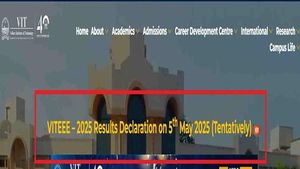Fabio Ochoa Vásquez, once one of the leading figures of the notorious Medellín cartel, has been released from U.S. prison after serving 25 years of what was initially a 30-year sentence. At 67 years old, Ochoa's release has initiated questions about his future as he prepares for deportation back to Colombia, where he will face the consequences of his past.
Ochoa's rise to infamy began alongside his brothers during the late 1970s and early 1980s, as the Medellín cartel became synonymous with the cocaine trade flooding the United States. At the height of their power, the Ochoa brothers’ wealth was so immense they made it onto Forbes Magazine's billionaire list by 1987. Fabio Ochoa, leveraging his family's background as elite ranchers and horse breeders, capitalized on this explosion of narcotics, running distribution operations from Miami as part of the cartel previously led by the infamous Pablo Escobar.
His notoriety was evident when U.S. authorities connected him to the murder of Drug Enforcement Administration informant Barry Seal back in 1986, which later became the inspiration for the Hollywood film American Made, starring Tom Cruise. That incident marked the beginning of Ochoa's fraught relationship with U.S. law enforcement as he became one of Colombia's most wanted criminals.
Although initially protected from U.S. extradition under Colombian policies, Ochoa's fate took a pivotal turn when he was arrested again and finally extradited to the United States in 2001. This came after he was implicated, along with over 40 others, in a significant drug smuggling conspiracy. Unlike his fellow defendants, who opted for plea deals, Ochoa chose to go to trial and was convicted, receiving the lengthy 30-year sentence.
Richard Gregorie, who was involved as assistant U.S. attorney during Ochoa's prosecution, expressed skepticism over the full recovery of his family's criminal wealth, implying he might return to Colombia with substantial resources. "Authorities were never able to seize all of the Ochoa family's illicit drug proceeds, and I expect he’ll have a warm welcome home," he told The Associated Press. He added, "He won’t be retiring a poor man, that's for sure." Ochoa's legacy looms large, especially amid the shifting dynamics of the drug trade, which saw Colombian cartels gradually overshadowed by Mexican operations.
The Medellín cartel's influence and the chaos it provoked is somewhat revived in popular culture through shows like Narcos, ensuring Ochoa remains a figure of intrigue even after his downfall. Now, as he prepares to assimilate back to life in Colombia, many wonder what his plans may be, and how his return will affect his family and the regional drug trade.
Ochoa’s release not only signals the conclusion of his lengthy incarceration but also marks the start of new speculation about the unresolved wealth and influence of the Medellín cartel. His return could potentially reignite old alliances, rivalries, and even pave the way for collaboration with current players entrenched in the drug trade.
The decades-long saga of the Medellín cartel symbolizes the complex intersections of crime, power, and culture, with figures like Fabio Ochoa at its epicenter. His story does not merely end with his release; instead, it ushers in new inquiries about the legacy he leaves behind and the prospects of his reestablished life. What intentions might he pursue, and how might he engage with both the broken remnants of his empire and the realities of contemporary Colombia?



